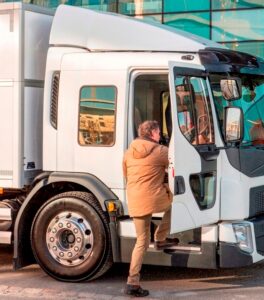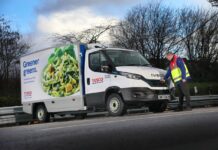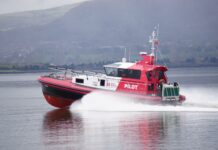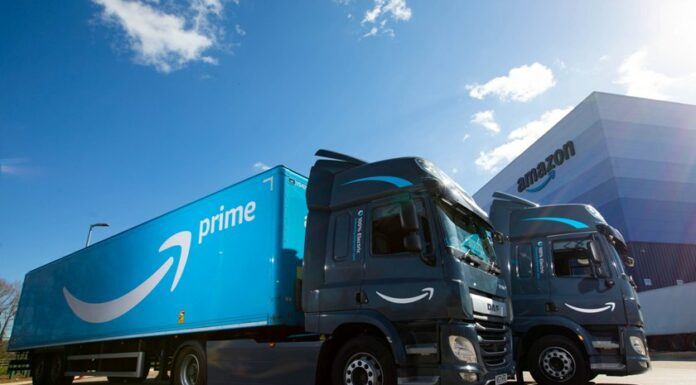The Irish Minister of State for Skills and Further Education, Niall Collins has formally launched a new innovative Eco Driving course for the haulage sector in Ireland.
The three-day SMART Driving programme, targeted at existing professional HGVs drivers, will help participants to develop behaviours and techniques that will improve fuel efficiency and road safety, reduce emissions, and will create cost savings for businesses & employers in the haulage sector.
According research conducted during programme development, haulage companies who participate in the course are set to save up to €4,000 annually in fuel and maintenance costs per fleet vehicle.
Speaking at the launch, Minister Collins said: “The Programme for Government 2020 outlines our commitment to reduce Ireland’s greenhouse gas emissions by 51% over this decade and to achieving climate neutrality by 2050. I am delighted to be launching this programme as it provides a great example of how industry and Government can work collaboratively as we all work towards the achievement of these goals.
“This programme will not only assist haulage companies to reduce their carbon emissions, it will also provide upskilling opportunities for those working in the sector which has seen huge technological advances in recent years.”
 The programme has been developed by Mayo, Sligo and Leitrim Education and Training Board (MSLETB) in collaboration with Waterford and Wexford Education and Training Board (WWETB) in partnership with the Irish Road Haulage Association (IRHA). The programme is funded by SOLAS through the “Skills to Advance” policy initiative under a competitive “Innovation through Collaboration” call for proposals.
The programme has been developed by Mayo, Sligo and Leitrim Education and Training Board (MSLETB) in collaboration with Waterford and Wexford Education and Training Board (WWETB) in partnership with the Irish Road Haulage Association (IRHA). The programme is funded by SOLAS through the “Skills to Advance” policy initiative under a competitive “Innovation through Collaboration” call for proposals.
Designed to meet specific upskilling needs in the HGV sector, the programme aims to support employers in the haulage sector which is experiencing significant change in work practices due to emerging opportunities in new technologies such as advanced tachographics, AI predictive systems for fuel efficiency, and digitisation in everyday driver activity. Coupled with this, the sector is also experiencing increasing economic vulnerabilities and significant challenges due to environmental pressures, Brexit, Covid-19, and changing markets.
The programme is designed to help mitigate against these challenges by upskilling professional drivers in eco-driving behaviour (creating fuel savings & lowering emissions), digital technology (in-cab and hand-held devices, for example), safe driving and driver health and well-being.
Also speaking at the launch was Paul Jackman, Vice President of the IRHA: “The nature of work for HGV drivers, with the equipment being utilised, digitalisation, market demands, regulatory compliance and changing work practices, has evolved in the road haulage sector almost beyond recognition in the last fifteen to twenty years.
“These changes coupled with the high average age in the sector very much suggests the need for an upskilling course for this current crop of drivers. Upskilling opportunities will help drivers deal with this new world while best availing of new technologies and practices. This will help drivers get a better understanding of their modern work environment and equipment thus helping drivers to drive and work in a safe and compliant manner, while using less fuel to do so.”



















